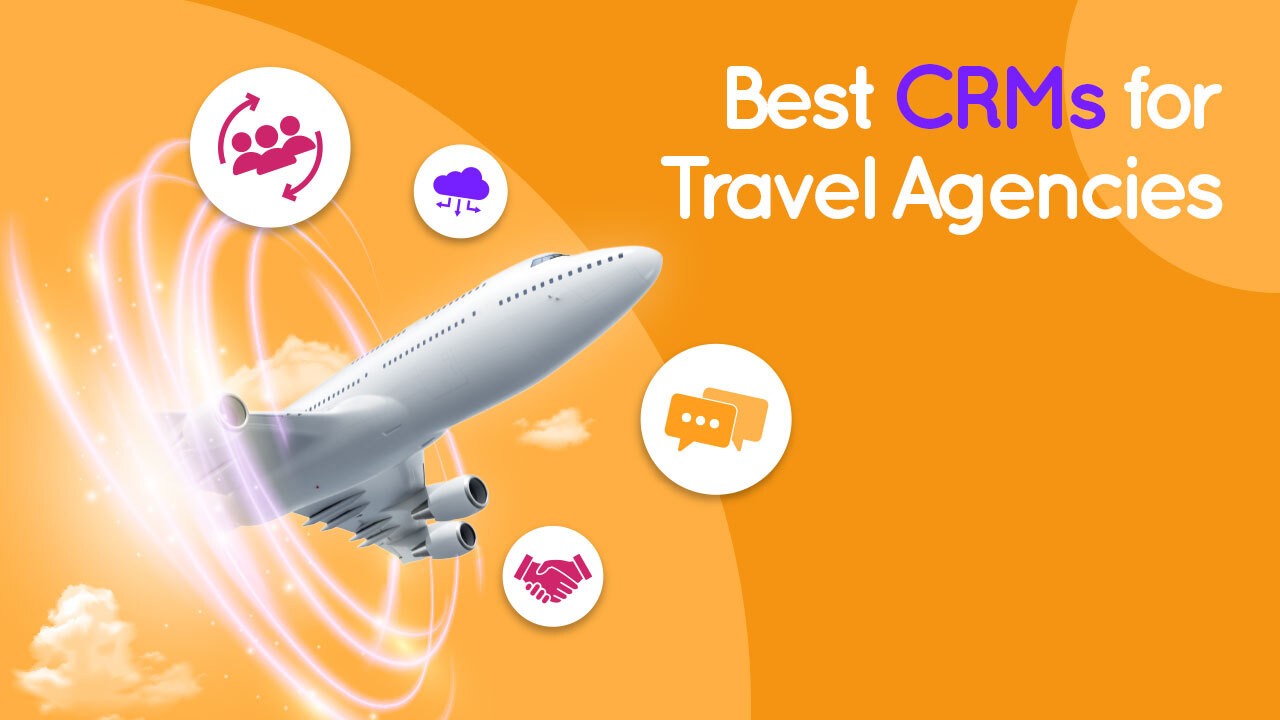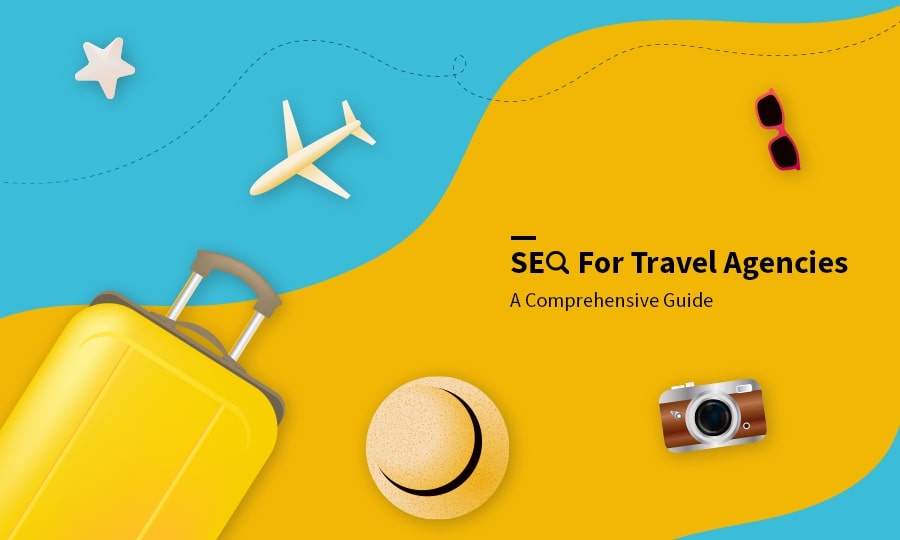
Travel CRM: The Easy Way to Interact with Customers
Customer satisfaction is the key to success in today's competitive travel industry. Travel agencies have to deal with multiple clients, reservations, inquiries, and bookings each day. It can become difficult to maintain consistent, personalized, and efficient communication with each customer. Here comes the role of the travel customer relationship management systems. A travel CRM makes it easier to manage customer interactions, streamlines operations, and ultimately improves the customer experience. But how does it work, and why is it important for travel businesses? Let's dive into how Travel CRM can make interactions with customers easier and more effective.
What is a travel CRM?
A travel CRM is a product designed for dealing with the relationship of a traveling company with its customers, like tour operators, travel agencies, or hospitality services. The application used here will store information regarding their customers, monitor their interaction, and improve the communication process. This will make travel companies better at offering personalized experiences and meeting the demands of customers by creating a single location to gather information regarding the preferences, history of travels, booking data, and communication records.
How Travel CRM Makes Customer Interactions Easier
Customer Centralization
One of the important features that a travel CRM provides is the consolidation of all customer data in one place. This encompasses contact details, preferences, past trips, booking information, and even customer feedback. Travel agents or customer service agents can quickly understand a customer's requirements, past interactions, and preferences when they have relevant data in one place.
For example, the agent can immediately retrieve not only a customer's booking history but also any previous preferences; that is, what hotels they have always booked or where they have wished to travel. The agent can even retrieve any concerns they may have had previously about previous trips. This immediacy in retrieving detailed information on a customer allows an agent to make recommendations and give answers faster.
Personalized Communication with Customers
Every traveler is unique; they like customized service. Travel CRM systems help businesses personalize their interactions with customers in terms of preferences and previous behavior. Whether a customer is booking frequent family vacations, luxury packages, or adventure tours, a CRM flags these as preferences and recommends corresponding products and services in further communications with the customer.
As illustrated above, if a client earlier booked a luxury cruise, the CRM will flag that in the system, thereby enabling an agent to make suitable recommendations for high-end travels the next time the customer contacts the agency. Such customizations of offerings based on tastes help travel companies build greater relationships and improve customer loyalty.
Better Communication Channels
Travel CRMs will centrally collect all communication channels, which often include email, phone calls, social media, and live chat. All this can be tracked and administered in one place so as to avoid missed communications as well as improve response times to communicate with the customers by whichever means they reached the company.
For example, if a customer inquires about the upcoming trip via email and later dials the company, the agent would be able to refer to the email conversation while speaking to the customer. This communication system would be fully integrated, and therefore no query would fall through the cracks of a customer interaction.
Automated Responses and Follow-ups
Many CRM systems have automated features that can answer customer inquiries instantaneously. A confirmation email following a booking, a reminder of a trip scheduled, or an appreciation note following a holiday are some of the things that automation reduces the workload on staff and also ensures timely communication to customers.
Furthermore, some automations can be set up in response to specific triggers. For instance, when a customer has placed a booking for a specific destination, the CRM system could automatically send them relevant information, such as tips on the destination, local attractions, or special offers on their trip. Such an automated yet personalized interaction will improve customer engagement and add value to the entire experience.
Effective Issue Resolution
In any customer-facing industry, problems and complaints are inevitable. Travel businesses are no exception, given the unpredictable nature of travel. However, having a CRM in place makes it much easier to resolve issues quickly. Agents know that they can access any complete history of customer interactions, even previous issues or preferences that would affect the current situation.
For instance, when a customer complains to the call center about the hotel they are staying at, the agent can easily get into the booking information and review previous complaints or special requests. The agent can then respond more rapidly and specifically, whether to upgrade, reschedule, or resolve an issue about payment. CRM enables immediate action on behalf of the agent, which enhances customer satisfaction.
Improved Team Interaction
In large travel agencies, there could be different team members who interact with a customer at various different stages of their journey, from bookings to post-trip. A CRM ensures that all the contact information about a customer is available to all the team members. Shared data makes collaboration between the staff easier and thereby enables them to provide smoother service to the customers even though they might be interacting at different times with different representatives.
For instance, if one agent is dealing with a customer's booking but another is dealing with a post-trip inquiry, both can access the same customer data. This will prevent the frustration of customers having to repeat themselves. The collaborative features in CRMs can also allow agents to leave internal notes, which helps everyone stay on the same page about customer needs.
Improved Customer Insights and Reporting
A travel CRM does not just store data but provides insights through reporting and analytics. The analysis of customer data gives travel businesses insight into the behavior of customers, the most popular destinations, trends in booking, and so much more. Data can be used to change marketing strategies, enhance customer offerings, and improve service.
For instance, if a travel agency monitors the most popular destinations of its customers and then uses that information to develop targeted marketing campaigns. Further, these insights will aid businesses in predicting their needs for customers and discovering opportunities to upsell or cross-sell other relevant services.
On-the-Go Access Using Mobile
Most of the time, many travel professionals spend traveling, attending meetings, or assisting clients in person. Hence, with the cloud-based travel CRM, agents are able to retrieve customer information from anywhere using either their smartphones or tablets, thus facilitating the continuation of customer interaction even when they are not at their desks.
For example, a travel agent in an airport with a client, who has to make a last-minute change to a booking, can do so using his mobile device. Mobile access gives the flexibility and speed needed to deliver excellent customer service regardless of location.
Conclusion
Building strong relationships with customers is more important now than ever in today's fast-paced travel industry. Travel CRMs streamline the overall process of customer interaction and centralize data, so communication is smooth and every customer experience is personalized to a great extent. All this can be achieved while using a travel CRM to enhance and improve customer service, make customers satisfied, and finally build long-term loyalty. All in all, contacts with customers become even more manageable, efficient, and emotionally rich with the right selection of a CRM system.
Using the power of technology, travel companies can ensure smooth, personalized, and memorable experiences for their customers, from the initial booking to post-trip follow-up. For an industry driven by customer relationships, a travel CRM is a must-have for success.

 Start your Travel Business with Our 7 Day Free Trial Website!
Start your Travel Business with Our 7 Day Free Trial Website!





